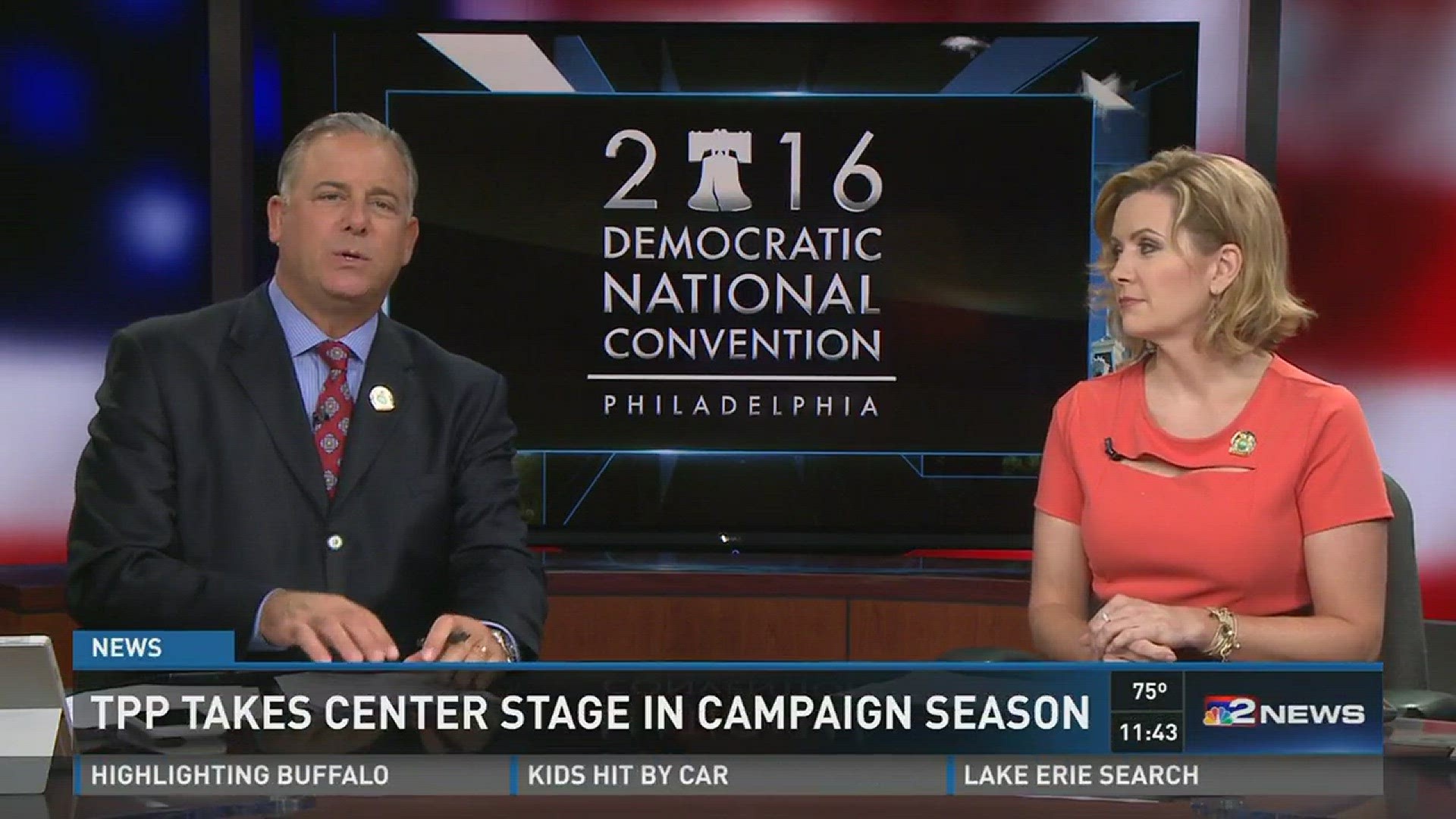A vast majority of Americans are probably not familiar with all the details of the Trans-Pacific Partnership, an enormous deal that would make it easier and cheaper for the United States to trade with Japan and other significant Pacific Rim nations.
The trade agreement, which has yet to be ratified by the 12 partnering nations, may seem like a mystery to many people, but the letters "TPP" have been hammered over and over again to the American public during the campaign season. Donald Trump said it would "be the deathblow for American manufacturing." Hillary Clinton now opposes it after originally helping negotiate it. Locally, both New York Senators -- Democrats Chuck Schumer and Kirsten Gillibrand -- and Congressmen Brian Higgins (D), Tom Reed (R) and Chris Collins (R) have all said they oppose the TPP, too.
Collins, Higgins and Reed signed their names on a letter sent to President Obama by a bi-partisan coalition of New York representatives, urging him to reconsider the trade agreement. In that letter, the coalition cited more than 100,000 job losses attributed to NAFTA, a prior trade agreement signed into law by President Bill Clinton, as evidence that another free trade deal could harm certain industries.
Congress has yet to ratify the TPP, and with both presidential candidates in opposition to it, the best chance for passage would be during a lame-duck session after November.
The main critics of the TPP come from industries that could be negatively impacted, said Meredith Kolsky Lewis, a SUNY Buffalo Law School professor who specializes in international trade law. Those include some manufacturing sectors, the auto industry and labor unions, all of which could face increased competition as a result of the TPP.
That labor base plays an important role in swing states like Pennsylvania and Ohio, which both Trump and Clinton need to win in order to take the White House.
But Lewis cautions that although some industries feel a significant pain from deals like the TPP, the agreement also has major selling points. It could grow the overall GDP in the United States and help service providers in industries like banking, agriculture and education. It could help consumers, too, by lowering prices across the board. Perhaps most significantly, it would place the United States in an advantageous position against China, which is not part of the TPP.
"In general, I would say the business community as a whole is largely in favor," Lewis said. "However, industries with a large percentage of labor union representation would be more likely to be opposed."
Lewis said it may be a mistake to link trade deals like NAFTA or TPP specifically to job losses, even though that theory has been floated by politicians from both parties. She points to the fact that the country has lost jobs to India and China despite not even having a free trade agreement with either of those countries.
"I think it's probably misguided to say that the cause of losing manufacturing jobs in the U.S. is very significantly due to NAFTA," Lewis said. "That may be a small part of it, but really, the bigger issue is just the increasing globalization of the economy."
Another popular critique, particularly from New York's members of the House of Representatives, is the idea that the TPP doesn't go far enough in protecting against currency manipulation. However, Lewis said a side agreement has been reached on that issue and could easily become part of the agreement as a whole.
Lewis also points out the TPP goes farther than perhaps any other trade deal in history in terms of protecting labor standards and the environment.
And it improves upon the terms of NAFTA.
"This provides an opportunity to upgrade NAFTA, if you will, to address the issues that have come to light," Lewis said, "or weren't able to be addressed in the initial negotiations."
The Trans-Pacific Partnership was considered a significant victory for the Obama administration when the initial terms were agreed upon among the 12 countries, but as the election season has worn on, it has become increasingly more unpopular among candidates and politicians.
Thomas Perez, the U.S. Secretary of Labor, spoke to 2 On Your Side in April and addressed those concerns about the deal.
"The key is, learning from the mistakes of history. NAFTA was, promises made and promises not kept," Perez said. "A big part of what the president is trying to do is to help fortify middle class in countries with whom we have an important and close relationship."

